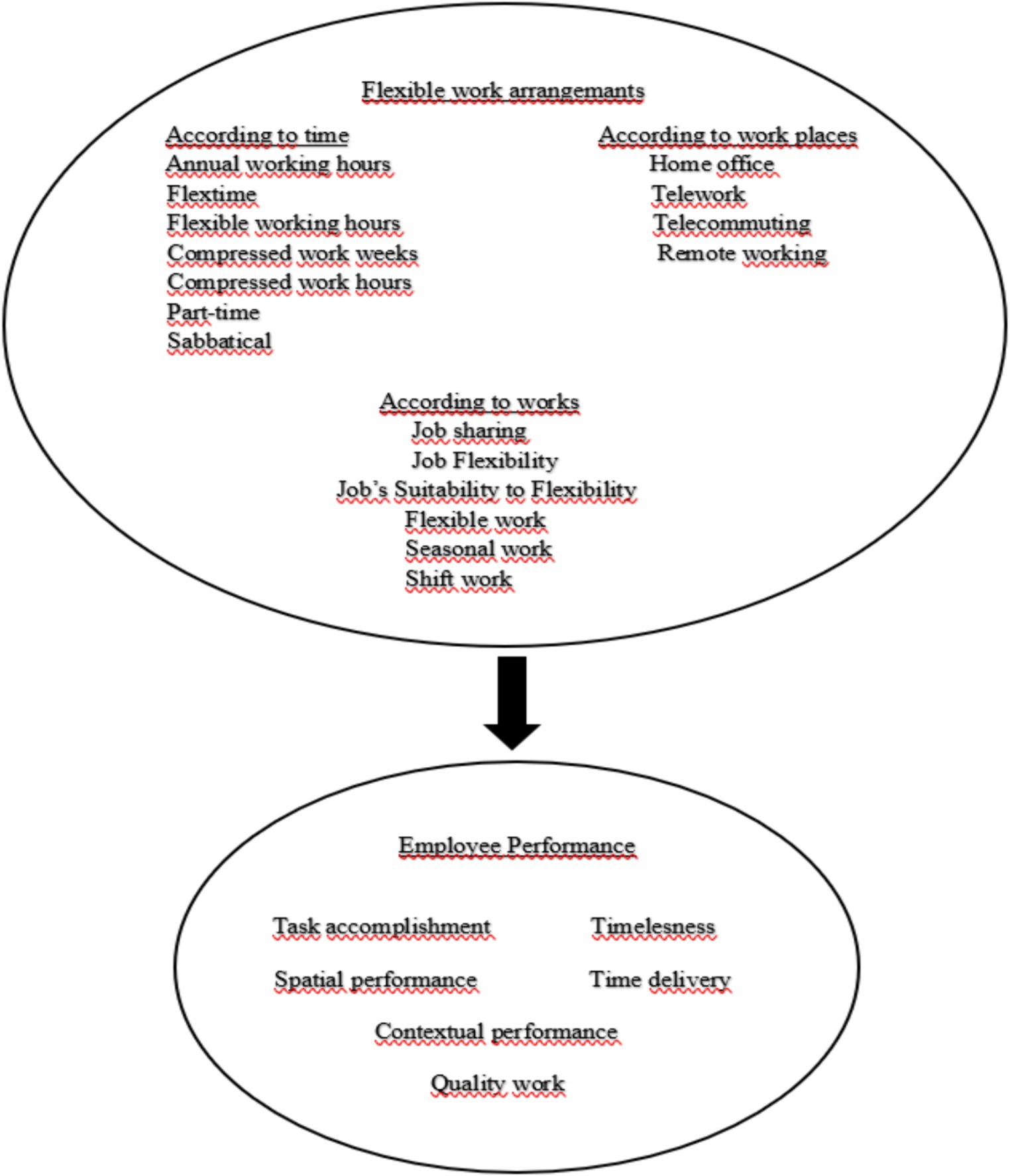How Flexible Working Arrangements Can Boost Your Mental Health
Benefits of Flexible Working Arrangements for Mental Health
Flexible working arrangements have become increasingly popular. They offer a departure from the traditional 9-to-5 office job. This shift can have profound positive impacts on mental health.
Reducing Stress and Anxiety
Traditional work models often come with rigid schedules and long commutes. These factors can significantly contribute to stress and anxiety levels. Flexible arrangements, such as remote work or flexible hours, can alleviate these pressures.
They allow individuals to tailor their workdays to better suit their personal needs and preferences. This can lead to a greater sense of control and reduced stress.
Enhancing Job Satisfaction and Engagement
Flexibility in work arrangements can foster a sense of autonomy and trust between employers and employees. When individuals feel trusted to manage their own time and workload, job satisfaction tends to increase.

This increased satisfaction often translates into higher levels of engagement. Employees are more motivated and invested in their work.
Supporting Work-Life Balance
One of the most significant advantages of flexible working is its potential to improve work-life balance. This is particularly crucial for individuals with various personal responsibilities.
Importance for Caregivers and Parents
Caregivers and parents often face the challenge of juggling work with family responsibilities. Flexible arrangements provide the necessary leeway to attend to both effectively.
For example, a parent might start their workday earlier. They can be available for school pick-up later in the afternoon.
Accommodating Mental Health Needs
Flexible work can be particularly beneficial for individuals managing mental health conditions. It allows them to work during their most productive hours.
They can take breaks when needed without the constraints of a fixed office schedule. The ability to work from a comfortable and safe environment can also be incredibly supportive.
Impact of Remote Work on Mental Health
Remote work is a significant component of flexible working arrangements. It has its own set of benefits and challenges for mental health.
Positive Effects of Remote Work
Remote work can offer several advantages for mental health. These are primarily due to increased flexibility and autonomy.
Reduced Commute Stress
Commuting, especially in congested urban areas, can be a major source of daily stress. Eliminating the commute by working remotely can lead to significant improvements in overall well-being.
A survey by FlexJobs found that 73% of respondents reported an improved work-life balance as a key benefit of remote work. This extra time can be used for relaxation, exercise, or spending time with loved ones.
Increased Autonomy and Control
Remote work often comes with greater autonomy over one's work environment and schedule. This sense of control can reduce feelings of pressure and enhance job satisfaction.
A study by Stanford University found that remote workers are 13% more productive than their in-office counterparts. This is partly due to fewer distractions and the ability to create a personalized work environment.
Potential Downsides of Remote Work
Despite the benefits, remote work can also present challenges to mental health. It is important to be aware of these potential downsides.
Feelings of Isolation and Loneliness
Working from home can sometimes lead to feelings of isolation and loneliness. This is especially true for those who thrive on social interaction in the workplace.

A report by Buffer found that 20% of remote workers cited loneliness as their biggest struggle. Regular virtual interactions and occasional in-person meetings can help mitigate this.
Blurred Boundaries Between Work and Personal Life
Remote work can make it difficult to separate work life from personal life. The convenience of having the office at home can lead to overwork.
Employees may feel pressured to be constantly available. This can result in burnout and increased stress. According to TravelPerk, 38% of employees suffer remote work burnout because they feel pressured by management to work more hours.
Flexible Work Schedules and Employee Well-Being
Flexible work schedules play a crucial role in enhancing employee well-being. Different arrangements can cater to individual needs and preferences.
The Role of Flexibility in Reducing Burnout
Burnout is a state of emotional, physical, and mental exhaustion caused by prolonged stress. Flexible work schedules can be a powerful tool in preventing burnout. They allow employees to adjust their work hours to better fit their energy levels and personal commitments.
Case Studies of Successful Implementation
Companies that have successfully implemented flexible work schedules often report positive outcomes. For example, some Nordic countries like Sweden and Denmark lead in offering flexible work.
They are supported by progressive labor laws. These countries have seen improvements in employee well-being and productivity.
Strategies for Effective Flexible Work Schedules
Implementing flexible work schedules requires careful planning. It also needs a supportive organizational culture.
Creating a Culture of Trust and Support
Trust is fundamental to the success of flexible work arrangements. Employers need to trust that employees will manage their time effectively.
Employees need to feel supported in their flexible schedules. This can be achieved through open communication and clear guidelines.
Setting Clear Expectations and Boundaries
While flexibility is beneficial, it's important to set clear expectations. This includes core working hours, response times, and availability.
Boundaries between work and personal time should be established. This helps prevent overwork and maintain a healthy balance.
Mental Health Strategies for Remote Workers
Working remotely requires proactive strategies to maintain mental health. Here are some effective approaches.
Establishing a Healthy Routine
Creating a structured daily routine can provide a sense of normalcy and stability. This is particularly important for remote workers.
Importance of Structured Daily Schedules
A consistent schedule helps to separate work time from personal time. It also ensures that essential tasks are completed.
This might involve setting specific start and end times for work. It should also include regular breaks, and incorporating personal activities into the day.
Incorporating Regular Breaks and Physical Activity
Regular breaks are crucial for maintaining focus and preventing burnout. Physical activity during breaks can further enhance well-being.

A short walk, stretching, or a quick workout can help to reduce stress. It can also improve mood and increase energy levels.
Promoting Social Connections and Team Engagement
Maintaining social connections is vital for combating feelings of isolation. Employers can facilitate this through various means.
Virtual Team-Building Activities
Organizing virtual team-building activities can help to foster a sense of community. This can include online games, virtual coffee breaks, or collaborative projects.
These activities provide opportunities for informal interaction. They can strengthen team bonds.
Regular Check-Ins and Support Systems
Regular check-ins with managers and team members are essential. They provide a platform for discussing work-related issues, sharing concerns, and offering support.
Establishing a support system within the team can also be beneficial. This can ensure that everyone feels connected and valued. You can also read our blog post on building a thriving hybrid work culture.
Conclusion
Flexible working arrangements can significantly boost mental health. This is achieved by reducing stress, enhancing job satisfaction, and improving work-life balance. Remote work, a key aspect of flexibility, offers numerous benefits but also presents challenges that need to be addressed. By implementing effective strategies and fostering a supportive culture, both employers and employees can maximize the positive impacts of flexible work on mental well-being. As workplaces continue to evolve, prioritizing flexibility will be crucial for creating healthy, productive, and engaged work environments.
Key Takeaways:
- Flexible working arrangements reduce stress and anxiety by allowing individuals to tailor their workdays to their personal needs.
- Remote work eliminates commute stress and increases autonomy, but can lead to feelings of isolation and blurred work-life boundaries.
- Flexible work schedules help prevent burnout by enabling employees to adjust their hours to better fit their energy levels and commitments.
- Creating a culture of trust and setting clear expectations are essential for the successful implementation of flexible work arrangements.
- Establishing a healthy routine, incorporating regular breaks, and promoting social connections are vital strategies for maintaining mental health while working remotely.
